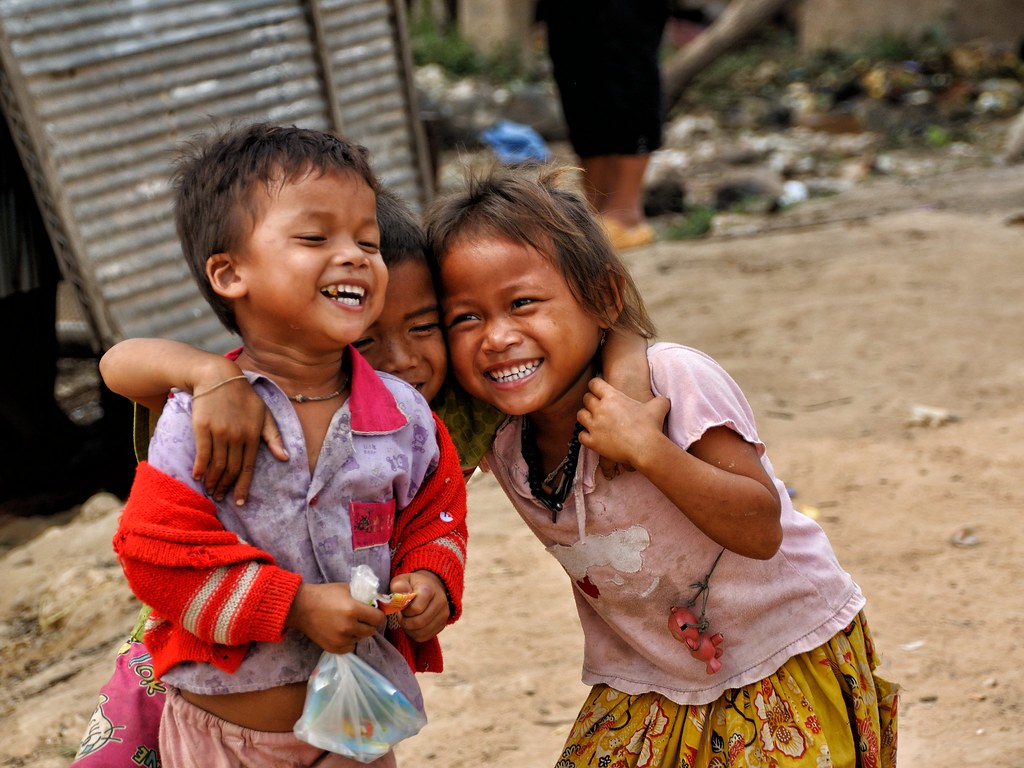charity-led initiatives for children : The role of charities in supporting children’s health and well-being
In a world where preventative healthcare plays a crucial role in overall well-being, charity-led initiatives for children are a beacon of hope. These programs prioritize education and awareness, instilling vital habits early on to promote a lifetime of wellness. Through innovative approaches and community engagement, charities are empowering the next generation to take control of their health and embrace healthier lifestyles. In this article we delve in children’s health and well-being.

Charities’ Role in Providing children’s health and well-being
Charities play a vital role in providing children’s health and well-being, especially those from underprivileged backgrounds. These organizations bridge the gap between marginalized communities and essential healthcare resources, ensuring that children receive the medical attention they need to thrive. By partnering with healthcare professionals, establishing clinics, and organizing medical outreach programs, charities bring primary care, vaccinations, and treatment options directly to children who may otherwise lack access.
Moreover, charities often focus on addressing specific health challenges prevalent among underprivileged children, such as malnutrition, infectious diseases, and inadequate prenatal care. Through targeted interventions and support services, they aim to improve children’s health and well-being and prevent long-term health complications.
charity-led initiatives for children’s health and well-being extend beyond immediate medical needs, encompassing preventive care, health education, and wellness promotion. By empowering children and their families with knowledge about nutrition, hygiene, and disease prevention, these organizations promote healthy lifestyles and behaviors that can have a lasting impact on overall well-being.
Furthermore, charities advocate for policy changes and healthcare reforms to address systemic barriers to healthcare access, ensuring that all children, regardless of their socioeconomic status, have the right to quality healthcare. In essence, charities’ role in providing children’s health and well-being is essential not only for addressing immediate health needs but also for promoting long-term health equity and well-being.
2. Charity-Driven Nutritional Support for children’s health and well-being
charity-led initiatives for children are instrumental in addressing the critical issue of malnutrition and promoting overall well-being among underprivileged youth. These initiatives, spearheaded by compassionate organizations, aim to tackle the root causes of nutritional deficiencies while fostering healthy habits and lifestyles.
One of the primary focuses of these programs is to ensure that children from vulnerable communities have access to nutritious meals and essential vitamins and minerals. Charities often collaborate with local partners to establish feeding programs, food distribution centers, and community gardens, providing children with regular access to balanced meals and fresh produce.
In addition to addressing immediate nutritional needs, charity-driven programs emphasize education and awareness about healthy eating habits and proper nutrition. Through workshops, cooking classes, and nutrition education sessions, children and their families learn how to make informed food choices and optimize their diets for better health outcomes.
Moreover, these programs of children’s health and well-being often incorporate wellness components, including physical activity, mental health support, and access to healthcare services. By taking a holistic approach to wellness, charities aim to support the overall development and resilience of children, empowering them to lead healthier and more fulfilling lives.
Ultimately, charity-driven children’s health and well-being programs serve as catalysts for positive change, breaking the cycle of malnutrition and promoting a culture of health and well-being within communities. Through their tireless efforts, these organizations are not only nourishing bodies but also nurturing futures, ensuring that every child has the opportunity to thrive.
3. Charity-led initiatives for children’s health and well-being in emotional aspect
Charity-led initiatives for children’s health and well-being and emotional well-being are invaluable in addressing the often-overlooked aspect of overall childhood development. Recognizing the profound impact of mental health on a child’s life trajectory, these organizations work tirelessly to provide support, resources, and advocacy for children facing mental health challenges, particularly those from underprivileged backgrounds.
One of the primary ways charities promote children’s mental health is through awareness campaigns and education initiatives aimed at reducing stigma and increasing understanding surrounding mental health issues. By fostering open conversations and providing accurate information, charities empower children, families, and communities to recognize the signs of mental illness and seek appropriate support when needed.
Additionally, charities often establish counseling services, helplines, and support groups specifically tailored to meet the needs of children experiencing mental health difficulties. These programs offer a safe and confidential space for children to express their feelings, receive professional guidance, and learn coping strategies to navigate life’s challenges.
Furthermore, charities collaborate with schools, healthcare providers, and community organizations to integrate mental health promotion into existing systems and services. By advocating for comprehensive mental health policies and programs, charities strive to ensure that all children have access to the care and support they need to thrive.
In essence, charities’ efforts in promoting children’s mental health and emotional well-being are essential for creating a supportive environment where every child can reach their full potential. Through their commitment to destigmatizing mental illness, providing access to resources, and advocating for systemic change, these organizations play a critical role in fostering resilience, healing, and hope for vulnerable children.

4. Charity-Led Preventive Health Education and Awareness Initiatives for Children
Charity-led preventive health education and awareness initiatives for children are pivotal in instilling lifelong habits of wellness and promoting disease prevention among vulnerable youth. These initiatives, spearheaded by compassionate organizations, focus on empowering children with the knowledge and skills needed to make informed decisions about their health and well-being.
One of the primary objectives of these initiatives is to educate children about the importance of preventive measures such as vaccinations, hygiene practices, and healthy lifestyle choices. Charities often conduct workshops, seminars, and interactive sessions in schools and communities to teach children about disease prevention, proper nutrition, exercise, and the importance of regular health check-ups.
Moreover, charities utilize innovative methods such as educational games, multimedia resources, and peer-to-peer learning to engage children in health promotion activities and make learning fun and accessible. By incorporating age-appropriate and culturally sensitive materials, these initiatives ensure that children from diverse backgrounds can benefit from the information provided.
Additionally, charity-led initiatives often extend beyond children to include families, caregivers, and communities at large. By involving parents and community members in health education efforts, charities create a supportive environment where everyone plays a role in promoting the health and well-being of children.
Furthermore, these initiatives emphasize the importance of early intervention and timely access to healthcare services. Charities collaborate with healthcare providers and local authorities to facilitate access to preventive screenings, immunizations, and other essential healthcare services for children, particularly those from underserved communities.
In essence, charity-led preventive health education and awareness initiatives for children are instrumental in laying the foundation for a healthier future generation. By equipping children with the knowledge and tools they need to prioritize their health and well-being, these initiatives empower them to lead fulfilling lives and contribute positively to their communities.
read more: Hopeful Beginnings: How Charities Reshape the Lives of Underprivileged Children




